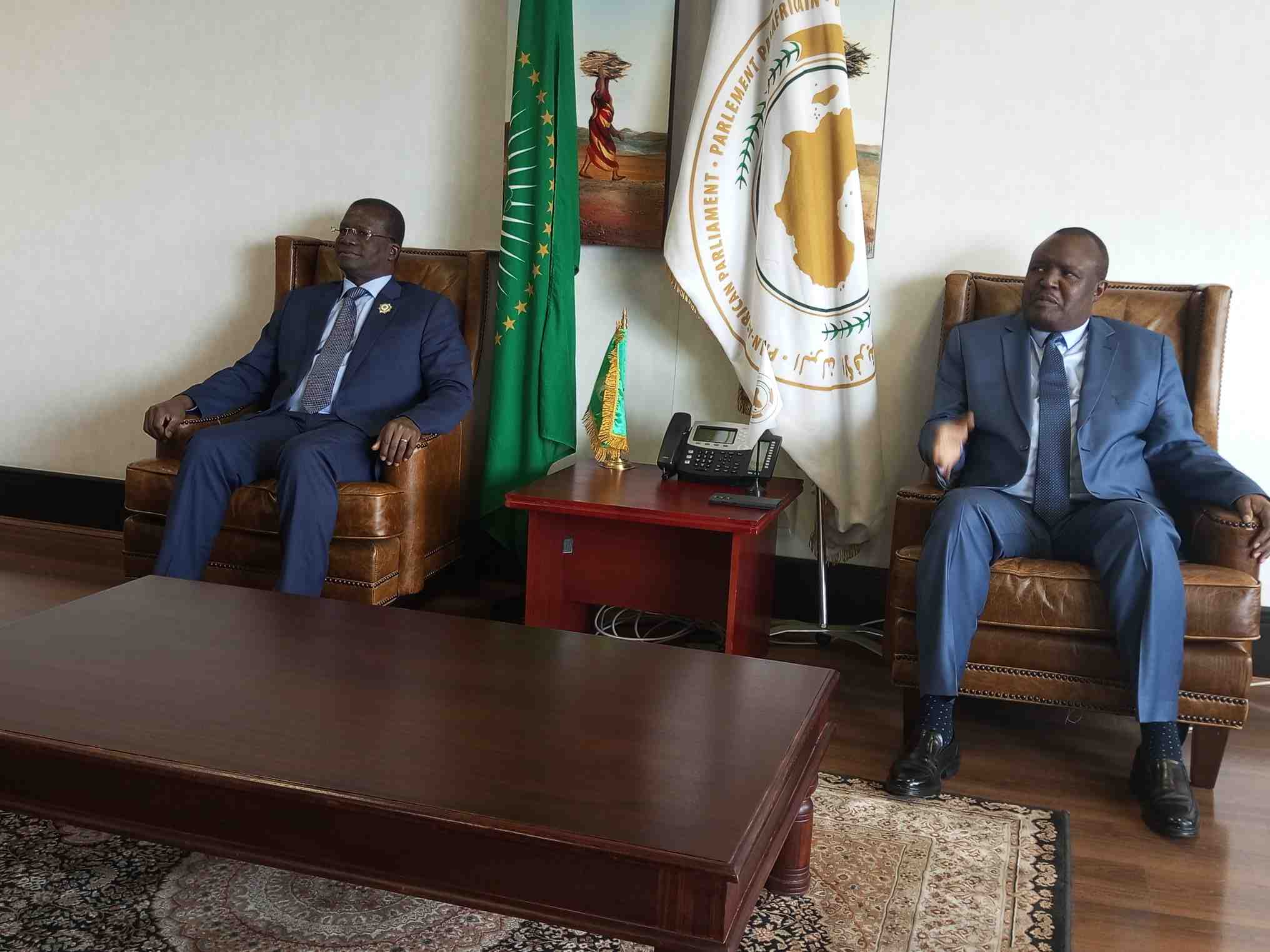|
Getting your Trinity Audio player ready...
|
As the curtain came down to a close for the First Session of the Sixth Parliament of the Pan African Parliament (PAP) today, Hon Chief Fortune Charumbira alluded to a number of tangible and implementable resolutions by the continent’s legislative organ.
Hon Charumbira told the media at a press conference today in Midrand, South Africa that the Pan African Parliament has adopted a results-oriented approach in pursuit of fulfilling the aspirations of the people on the continent.
“Among the issues tabled for implementation, this session is terrorism in Mozambique. The Pan-African Parliament will not accept the criminal and barbaric destabilization of the continent like what is happening in that country. We are following the situation in Mozambique closely. We will engage appropriate authorities of all levels of people representation to find a lasting solution.
“The people of Africa should make their own resolutions and not allow external meddling, especially by Europeans. The human rights terminology has been abused through individualistic, and capitalistic tendencies by the west. For example, blocking Uganda from constructing a pipeline for East Africa is one such. The West should allow development on the continent,” Chief Charumbira said.
The PAP President said Rwanda and the DRC are good brothers and neighbours who must be given the opportunity to talk to each other. Former President of Nigeria, Olusegun Obasanjo, who was invited to address the PAP Sixth Parliament, narrated the terrain walked in the negotiations between Ethiopia and Tigray.
He said as the Chief Negotiator, he did not impose but facilitated a peace process. President Obasanjo said the two parties should engage honestly and he was hopeful of the cessation of hostilities between the nations as good news for peace and security across the continent.
During the Sixth Parliament, the PAP undertook to take measures towards resolving challenges in countries like Sudan, Burkina Faso, and Mali.
“We have the hope of getting it right on the continent whereby Africa should determine its own course of governance. Topical during this session was the issue of sanctions against Zimbabwe that the rest of Africa considers illegal. Pan African Parliament MPs are unanimous that the sanctions are illegal. The PAP has promised to be more active regarding the removal of sanctions on Zimbabwe.
“We have already set up a team that will travel to countries that have imposed sanctions on Zimbabwe just like we did with respect to Sudan. Our team will be in Brussels from 7 to 9 December to engage the European Parliament regards Zimbabwe. The issue of food security and nutrition was topical wherein we agreed Africa should use its natural resources to improve food security.”
Chief Charumbira said this can only be possible through pursuing vigorous measures to engage AU member states for practical solutions. He called on African states to consider the irrigated crop instead of relying on rain-fed agriculture and urged international organisations like the World Food Programme (WFP) to invest in irrigable land to cut immensely on food handouts.
The PAP also came up with model laws regarding issues like statelessness, and disability.
There were calls for the PAP to ensure countries ratify protocols like Maputo and Malabo. The majority of countries sign protocols but are reluctant to ratify them to give legal effect in their own countries. The PAP has tabled some regional meetings on various protocols with member states and is encouraging citizens to push their own governments to ratify.
During the first session of the Sixth Parliament, Baroness Patricia Scotland, the Secretary-General of the Commonwealth is one of the world leaders invited to address the Parliament. It is envisaged that the PAP should be an international player because some issues affecting Africa as a continent go beyond its borders.
The PAP has promised to engage more international bodies and heralded its willingness to participate at the forthcoming US-Africa summit.
The Parliament is setting up a forum for sports. In 2023, it will engage players and people with experience in sports, with a particular focus on football development as the Qatar World Cup beckons.
Prof Mathole Motshekga, a member of the PAP’s Committee on Education, Culture, Tourism, and Human Resources paid tribute to the Parliament’s move to amend 84 out of 94 Rules of Procedure.
“I am glad that the Pan-African Parliament has employed the African way of resolving conflicts which is consensus building. PAP MPs now have a common purpose. There were fights along regional or language differences.
“The PAP now has a clear vision. It is now not just a pan-African Parliament by name. The PAP is now positioned to address all the challenges head-on. We expect that it is no longer a Parliament with teeth but does not bite. It’s encouraging that within a short period of time (6 months to be specific), Chief Chrarumbira has led this August House to achieve what it has failed to do in decades. We should create better lives for all Africans,” Prof Motshekga said.






